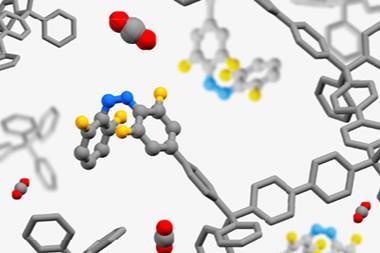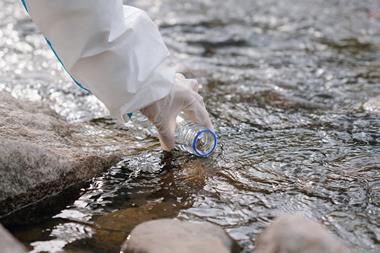Hydrogen peroxide can be efficiently synthesised from hydrogen and oxygen without the need for strong acids or the risk of explosion.
Hydrogen peroxide can be efficiently synthesised from hydrogen and oxygen without the need for strong acids or the risk of explosion, according to a team of Spanish researchers.
Common routes to this useful oxidant are generally expensive and hazardous but a team of chemists led by Jose Fierro, based at Instituto de Catálisis y Petroleoqu&0x00ED;mica in Madrid, have developed a catalyst which enables the hydrogen peroxide to be prepared directly from hydrogen and oxygen in a solvent. Fierro comments that ’the critical step was to develop a heterogeneous catalyst able to reduce partially oxygen into hydrogen peroxide without reaching deep reduction into molecular water’. They found that catalysts containing Pd 2+ interacting with sulfonic acid groups fulfilled these criteria. This led them to develop effective catalysts by anchoring Pd 2+ ions in ion exchange resins functionalised with sulfonic acid groups. Comparing catalysts with different compositions shows that the resin with the highest surface density of sulfonic acid groups is the most efficient for hydrogen peroxide synthesis.
Caroline Evans
References
G Blanco-Brieva et al,Chem. Commun., 2004, 1184 <MAN>b402530j</MAN>






No comments yet